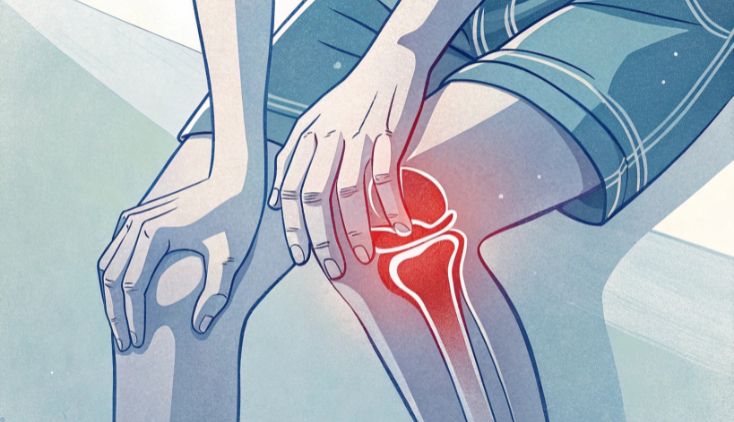From Fatigue to Bone Pain
Myeloma (also called multiple myeloma) is a type of blood cancer that begins in plasma cells, a kind of white blood cell that helps the body fight infections. When plasma cells become abnormal, they grow too quickly and crowd out healthy blood cells. Over time, this can affect the bones, kidneys, immune system and overall energy levels.
Myeloma can be difficult to recognize early because its symptoms often look like common, everyday health issues. However, understanding the hidden signs of myeloma can help people seek medical attention sooner, which may lead to earlier diagnosis and better management. Let's take a look at signs you shouldn't ignore, and when to see a doctor.
1. Persistent Bone Pain
One of the most common signs of myeloma is bone pain, especially in the back, ribs, hips or legs.
The pain may:
- Feel dull or deep.
- Be worse at night.
- Get worse with movement.
Myeloma weakens bones because cancerous plasma cells build up inside them, making them more fragile. If the disease has progressed, even small movements or mild stress can lead to fractures.
2. Frequent Infections
Myeloma affects the immune system, making it harder for the body to fight germs. As a result, people may notice they are:
- Getting sick more often.
- Taking longer to recover.
- Experiencing repeated infections such as pneumonia, sinus infections or urinary tract infections.
These infections can also be more severe than usual.
3. Fatigue and Weakness
A very common early symptom is extreme tiredness that doesn’t improve with rest. This happens for a few reasons:
- Myeloma reduces the number of healthy red blood cells, causing anemia, which leads to fatigue, dizziness and weakness.
- The body may also be working harder to fight infections or manage inflammation.
If someone feels unusually drained or out of breath doing normal activities, it can be a sign that something more serious is happening.
4. High Calcium Levels (Hypercalcemia)
When myeloma damages bones, calcium can leak from the bones into the bloodstream. High calcium levels can cause several symptoms:
- Nausea or vomiting.
- Constipation.
- Excessive thirst.
- Confusion.
- Frequent urination.
These symptoms may appear slowly, so they can easily be mistaken for dehydration or stomach issues.
5. Kidney Problems
Myeloma can affect kidney function because:
- High levels of abnormal proteins produced by cancerous plasma cells can damage the kidneys.
- High calcium levels make the kidneys work harder.
Warning signs of kidney issues may include:
- Swelling in the legs or feet.
- Foamy urine.
- Needing to urinate more or less often.
- Feeling unusually tired or nauseated.
In some cases, kidney problems show up in blood tests before a person feels any symptoms.
6. Numbness or Tingling
As bones weaken, they can press on nerves, especially in the spine. This pressure can cause:
- Numbness.
- Tingling.
- Pain in the legs or arms.
If the spine becomes unstable, it can lead to more serious nerve problems, which makes early recognition important.
7. Unexplained Weight Loss
Many types of cancer, including myeloma, can lead to weight loss without trying. This may happen because the body is using more energy to fight disease, or because persistent nausea, pain or fatigue reduces appetite.
8. Excessive Thirst
Severe thirst may be a sign of:
- High calcium levels.
- Kidney strain.
- Dehydration from vomiting or frequent urination.
If thirst comes with confusion, constipation or nausea, it may be linked to calcium imbalance caused by bone damage.
When to See a Doctor
Myeloma symptoms can be subtle at first, but catching them early makes a meaningful difference in treatment options and quality of life. You should see a doctor if:
You have persistent or unexplained symptoms, such as:
- Ongoing bone or back pain.
- Tiredness that doesn’t improve with rest.
- Repeated infections.
- Unexplained weight loss.
- Numbness or tingling.
- Unusual thirst or frequent urination.
Your symptoms are getting worse. If a symptom that used to be mild is becoming more frequent or more intense, it’s important to get it checked.
You’ve had blood tests showing anemia, high calcium or kidney issues. Even if you feel fine, abnormal test results can be early clues to myeloma or other conditions that need attention.
You feel something “just isn’t right." You know your body best. If something feels off for more than a few weeks, it’s worth talking to a healthcare professional.
While these symptoms do not mean someone definitely has myeloma, they should not be ignored, especially when several occur at the same time. Early evaluation of hidden signs of myeloma can lead to earlier diagnosis and better treatment options, helping people stay healthier and more comfortable.
